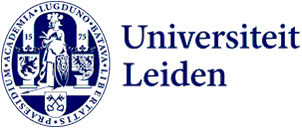
Dive into the origins of the International Labour Organisation and the League of Nations
The Leiden interdisciplinary research programme Global Transformations and Governance Challenges (GTGC) and the Embassy of Ireland are jointly organising a special book launch in The Hague. On 13 November, Gerry Finnegan, author and a former director of the International Labour Organisation (ILO), will speak about the origins of the ILO and the League of Nations.
How did the International Labour Organisation and the League of Nations (precursor to the United Nations) - two of the most influential international organisations on the interbellum world stage - come into being? In his latest book 'The Irish Influence: Building the League of Nations and the International Labour Organisation', Gerry Finnegan, a former director at the ILO, explores the history and tasks of the two bodies. He does this based on the life stories of two Irishmen who are closely tied to the two bodies: Seán Lester, was Irish envoy to the League of Nations and the last Secretary-General from 1940 to 1946. Edward Phelan, was the fourth Director-General of the ILO between 1941 and 1948. The two men worked together in Geneva, the diplomatic centre of the world in the 1930s.
Drawing on his new book and his own rich practical experience, Gerry Finnegan will talk about the ins and outs of the two diplomatic bodies, which were instrumental in shaping the modern diplomatic scene. Finnegan's keynote will be followed by a discussion to be led by Leiden historian Alanna O'Malley. Her work focuses on the history of the United Nations, decolonisation and the Cold War.
All staff and students of Leiden University are welcome to attend the presentation. Please register quickly, as the number of available seats is limited.
When: Monday 13 November, 17-18, followed by drinks
Where: Wijnhaven, The Hague (room 3.60, drinks in De Brasserie, ground floor)
About the Global Transformations and Governance Challenges research programme
Ongoing global developments have created new challenges for our societies. Take, for example, the need for coordinated international approaches to pandemics, global warming and migration; or the importance of benefiting from new technologies while also tackling their potential negative effects. Leiden University’s Global Transformations and Governance Challenges interdisciplinary research programme explores how we can address these global transformations in democratic, effective, fair, peaceful and sustainable ways.
